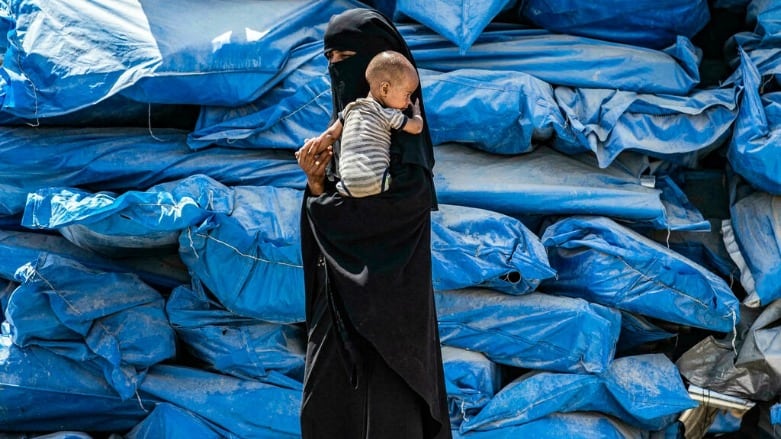The Iraqi government seeks to resolve the issue of the Syrian Al-Hol camp in an attempt to dismantle it and repatriate all its residents to their homeland. However, these efforts are met with warnings of a “ticking bomb” that could revive ISIS by smuggling some of its leaders present in the camp.
With disputes erupting from time to time within the camp and open carrying of weapons, member of the Parliamentary Security Committee, MP Yasser Eskander, revealed today, Sunday, three Iraqi steps to end the Syrian Al-Hol camp issue.
Politicians and security circles in Iraq fear the use of ISIS elements in the Al-Hol camp by the United States as a card to destabilize the security situation anew.
Eskander said, “Iraq was one of the first countries to early highlight the danger of the Syrian Al-Hol camp in the Middle East and considered it a ticking human bomb that could stir chaos in several capitals, especially with the presence of thousands of terrorists from about 30 foreign nationalities.”
He added that “Iraq, through a central committee managed by the National Security, has adopted 3 steps in managing the file according to what serves the country’s interests, by repatriating Iraqi families after comprehensive screening and involving them in a special program, while vigorously pursuing the tracking of the accused terrorists and reclaiming them to receive their fair punishment before Iraqi courts.”
He noted that “with the return of hundreds of families, no problems have been recorded so far, and we are in constant follow-up,” adding that “Iraq is pressing towards ending the Syrian Al-Hol camp file and calling on other countries to take back their nationals and to present all terrorists to justice to put an end to a file that remains a concern not only in Baghdad but in the entire region.”
A report by the British Middle East Forum website on April 4th revealed clashes and open carrying of weapons inside the foreign families section in the Al-Hol camp, indicating that ISIS elements attacked a tent belonging to the International Red Cross, covering their faces and attacking, claiming that Al-Hol is one of their bases and an important part of their infrastructure.”
Informed sources revealed on March 11th that tensions have escalated between families of ISIS leaders and elements in the Al-Hol camp, amid information indicating that a large number of these families wish to stay in Syria as all of them are wanted by security forces and tribes for committing killing, bombing, and displacement operations against the province’s residents during their invasion of Anbar cities.
It is worth mentioning that the coordination framework official Adi Abdel Hadi confirmed, on February 5th, that America wants to reopen a secret passage to the Syrian Al-Hol camp towards Iraq by bombing western Anbar, as the presence of the Popular Mobilization Forces in this area is a threat to American plans, which seek to transfer terrorists in various ways and create secret corridors for their flow.”
The Al-Hol camp, which is under strict guard and supervised by the Syrian Democratic Forces, accommodates around 48,000 people after they were 73,000 people, with the majority of the camp’s residents being women and children of ISIS, which raises fears of the birth of a new generation of terrorists.
Thousands of ISIS members were transferred to the Al-Hol camp after being defeated in Syria in March 2019, and ending their control over large areas of Iraqi and Syrian territories.
The return of these families has angered many parties, considering them affiliates of ISIS, and their return is seen as a significant danger to Iraq. MP Mohammed Kareem previously told “Al-Alam Al-Jadeed,” “These decisions are externally influential to recycle these killer bombs back into the country, and they know that these people grew up in crime with their ISIS mothers and fathers.”
The establishment date of the Al-Hol camp dates back to the 1990s, when it was established by the United Nations High Commissioner for Refugees on the outskirts of Al-Hol town in coordination with the Syrian government. More than 15,000 Iraqi and Palestinian refugees moved to it. Many of them emigrated to various parts of the world with the assistance of the United Nations, especially after the events of 1991 when the former Iraqi regime invaded Kuwait, and the United States led an international coalition against it.





